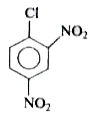Which of the given compound does not undergo hydrolysis?
BeCl2
BCl3
CCl4
SiCl4
To determine which compound does not undergo hydrolysis among the given options, we will analyze each compound based on its structure and reactivity with water.
Step 1: Analyze BeCl2
- Hybridization: BeCl2 has a central beryllium atom that undergoes sp hybridization.
- Vacant Orbitals: Beryllium has two vacant p-orbitals.
- Reaction with Water: Water can donate lone pairs to these vacant orbitals, leading to hydrolysis.
- Reaction:
BeCl2+2H2O→Be(OH)2+2HCl
- Conclusion: BeCl2 can undergo hydrolysis.
Step 2: Analyze BCl3
- Electron Deficiency: BCl3 is an electron-deficient molecule.
- Reaction with Water: It can accept a pair of electrons from water.
- Reaction:
BCl3+3H2O→B(OH)3+3HCl
- Conclusion: BCl3 can undergo hydrolysis.
Step 3: Analyze CCl4
- Hybridization: CCl4 has sp3 hybridization.
- Complete Octet: All p-orbitals are occupied, and there are no vacant orbitals available for bonding with water.
- Conclusion: CCl4 cannot undergo hydrolysis.
Step 4: Analyze SiCl4
- Hybridization: SiCl4 also has sp3 hybridization.
- Vacant Orbitals: Silicon has vacant 3d orbitals that can accept lone pairs from water.
- Reaction with Water:
SiCl4+2H2O→SiO2+4HCl
- Conclusion: SiCl4 can undergo hydrolysis.
Final Conclusion
Based on the analysis:
- BeCl2: Can hydrolyze.
- BCl3: Can hydrolyze.
- CCl4: Cannot hydrolyze.
- SiCl4: Can hydrolyze.
Thus, the compound that does not undergo hydrolysis is CCl4.
- Hybridization: BeCl2 has a central beryllium atom that undergoes sp hybridization.
- Vacant Orbitals: Beryllium has two vacant p-orbitals.
- Reaction with Water: Water can donate lone pairs to these vacant orbitals, leading to hydrolysis.
- Reaction:
BeCl2+2H2O→Be(OH)2+2HCl
- Conclusion: BeCl2 can undergo hydrolysis.
- Electron Deficiency: BCl3 is an electron-deficient molecule.
- Reaction with Water: It can accept a pair of electrons from water.
- Reaction:
BCl3+3H2O→B(OH)3+3HCl
- Conclusion: BCl3 can undergo hydrolysis.
- Hybridization: CCl4 has sp3 hybridization.
- Complete Octet: All p-orbitals are occupied, and there are no vacant orbitals available for bonding with water.
- Conclusion: CCl4 cannot undergo hydrolysis.
- Hybridization: SiCl4 also has sp3 hybridization.
- Vacant Orbitals: Silicon has vacant 3d orbitals that can accept lone pairs from water.
- Reaction with Water:
SiCl4+2H2O→SiO2+4HCl
- Conclusion: SiCl4 can undergo hydrolysis.
Based on the analysis:
- BeCl2: Can hydrolyze.
- BCl3: Can hydrolyze.
- CCl4: Cannot hydrolyze.
- SiCl4: Can hydrolyze.
Topper's Solved these Questions
Similar Questions
Knowledge Check
Which one of the following compounds undergoes hydrolysis most readily by aq. NaOH to furnish corresponding phenol ?
A B
B C
C D
D
Which of the following compound does not undergo base - catalyzed exchange in D2O even though it has an α-hydrogen?
A B
B C
C Dboth (b) & (c)
Dboth (b) & (c)
Which of the following salts do not undergo hydrolysis when dissolved in water ?
View SolutionWhich of the following salts do not undergo hydrolysis when dissolved in water ?
KCl
View SolutionWhich of the following salts do not undergo hydrolysis when dissolved in water ?
Ammonium chloride
Sodium Sulphate
View SolutionWhich of the following salts do not undergo hydrolysis when dissolved in water ?
NaCl
K2CO3
View SolutionWhich of the following compound does undergo aldol condensation
View SolutionWhich of the following do not undergo hydrolysis?
View Solution
